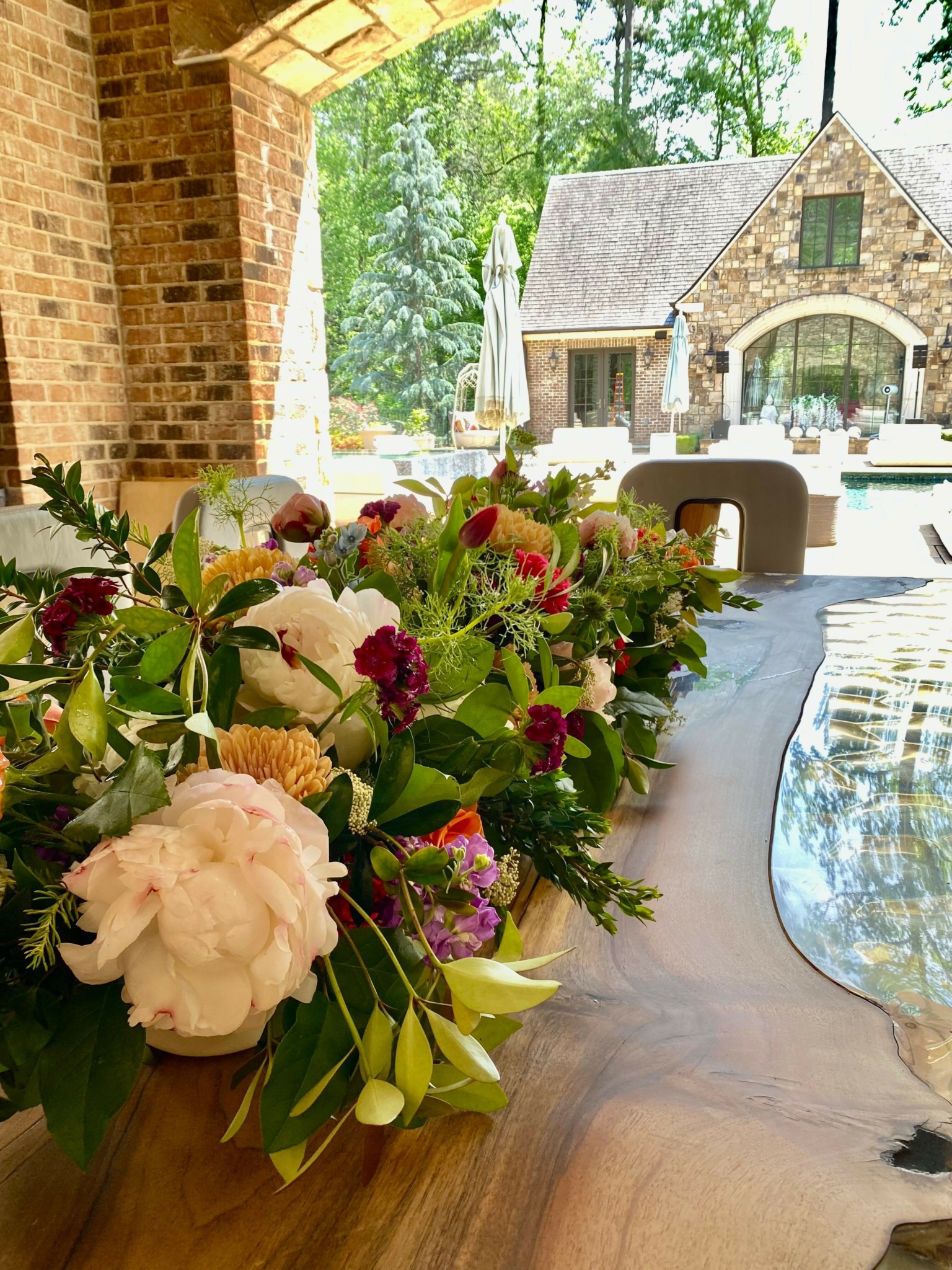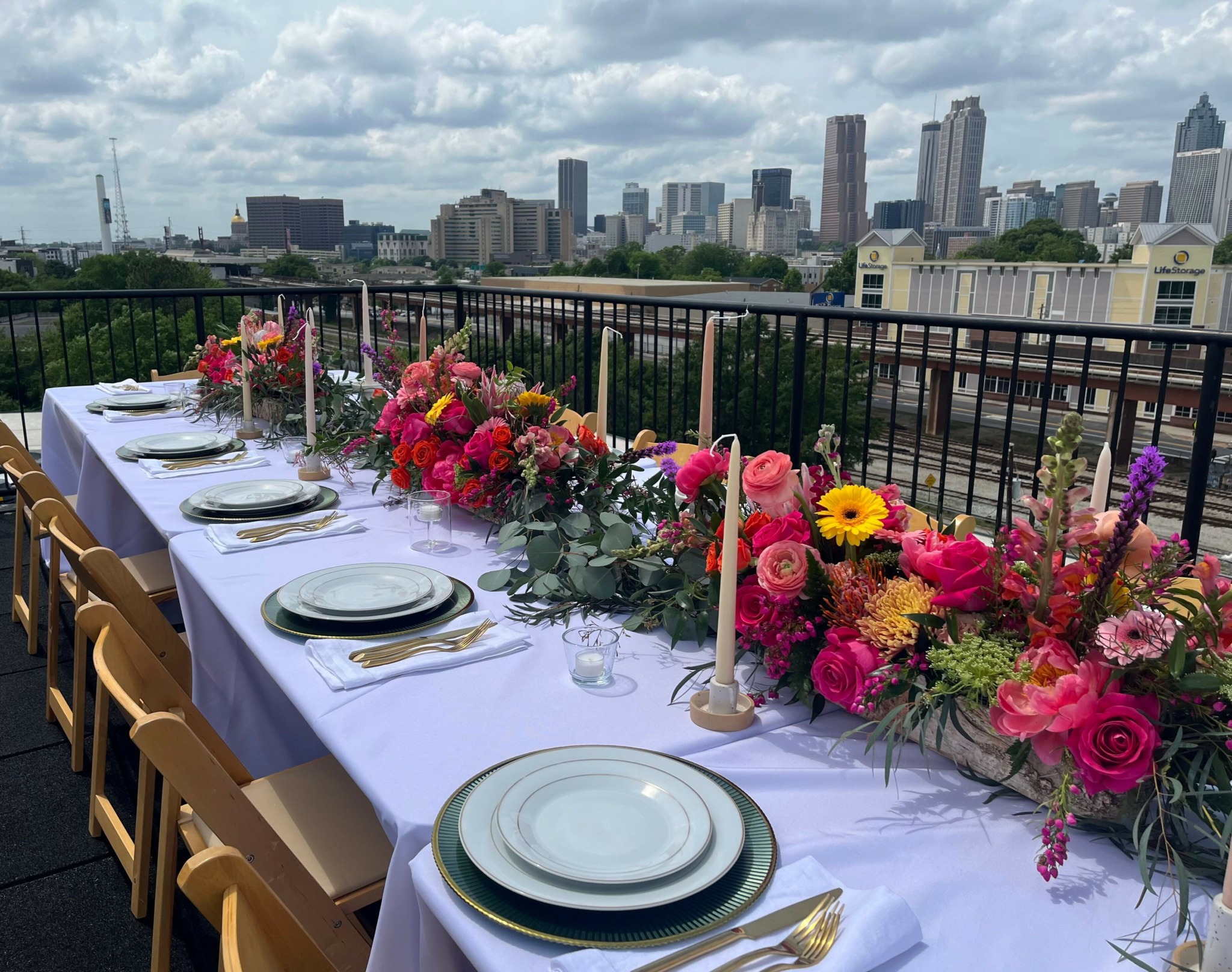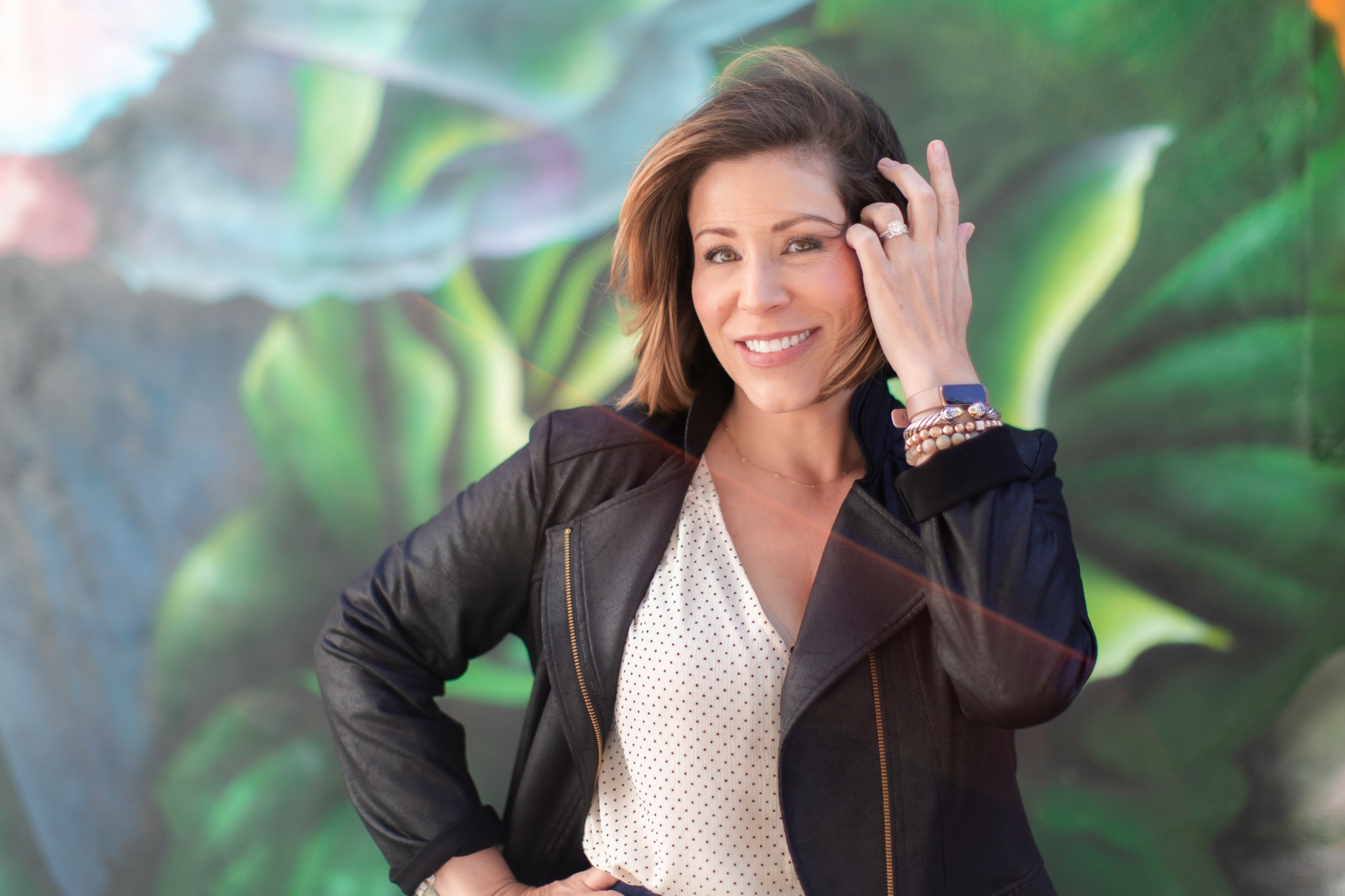We were lucky to catch up with Jennifer Schweidel recently and have shared our conversation below.
Alright, Jennifer thanks for taking the time to share your stories and insights with us today. What do you think it takes to be successful?
I’ve learned that success often starts with a willingness to reinvent yourself. I didn’t grow up dreaming of owning a flower shop—much less two. For 15 years, I ran law firms. Then I stepped away to raise my kids. When I came back to work, I didn’t return to what I knew—I followed what intrigued me. I trusted that the skills I already had could carry me into a completely different industry, and they did. I bought my first shop, Floral Matters, in 2023 and my second, Blooms of Dunwoody, the following year. Reinvention isn’t failure—it’s growth. You’re allowed to become someone new.
Along the way, I’ve had to start before I felt ready—again and again. I didn’t wait until I felt like an expert. I moved forward with conviction and trusted that I’d figure it out. Whether it was pricing a luxury product, rebranding a legacy business, or designing for a five-star hotel, I’ve learned that confidence comes from doing—not waiting. You can’t let fear delay progress. Sometimes the only way out is through.
And honestly? Some of the best decisions I’ve made have also been the scariest. I’ve come to believe that if something makes you queasy, it’s probably your next right step. Nerves don’t mean stop—they mean stretch. Growth almost always comes wrapped in discomfort.
I’ve also learned that doubt doesn’t mean you’re doing it wrong. Some days, I still catch myself thinking, “Am I really the one for this?” “What if I’m in over my head?” But I’ve come to see those thoughts as part of the process—not a stop sign. The truth is, you don’t have to feel completely sure of yourself to move forward. You just have to keep showing up. I’ve grown two shops, led big projects, and made high-stakes decisions—sometimes with shaky hands. The nerves are real, but so is my ability to rise to the moment.
Success, for me, hasn’t come from having it all figured out. It’s come from listening closely to what lights me up—and being brave enough to follow it, even when the path isn’t clear. It’s come from making bold moves, building systems from scratch, and learning to take up space without apology. Reinvent when you need to. Start before you feel ready. Let your nerves point the way. And keep showing up—even when the doubt creeps in. That’s where the real transformation happens.
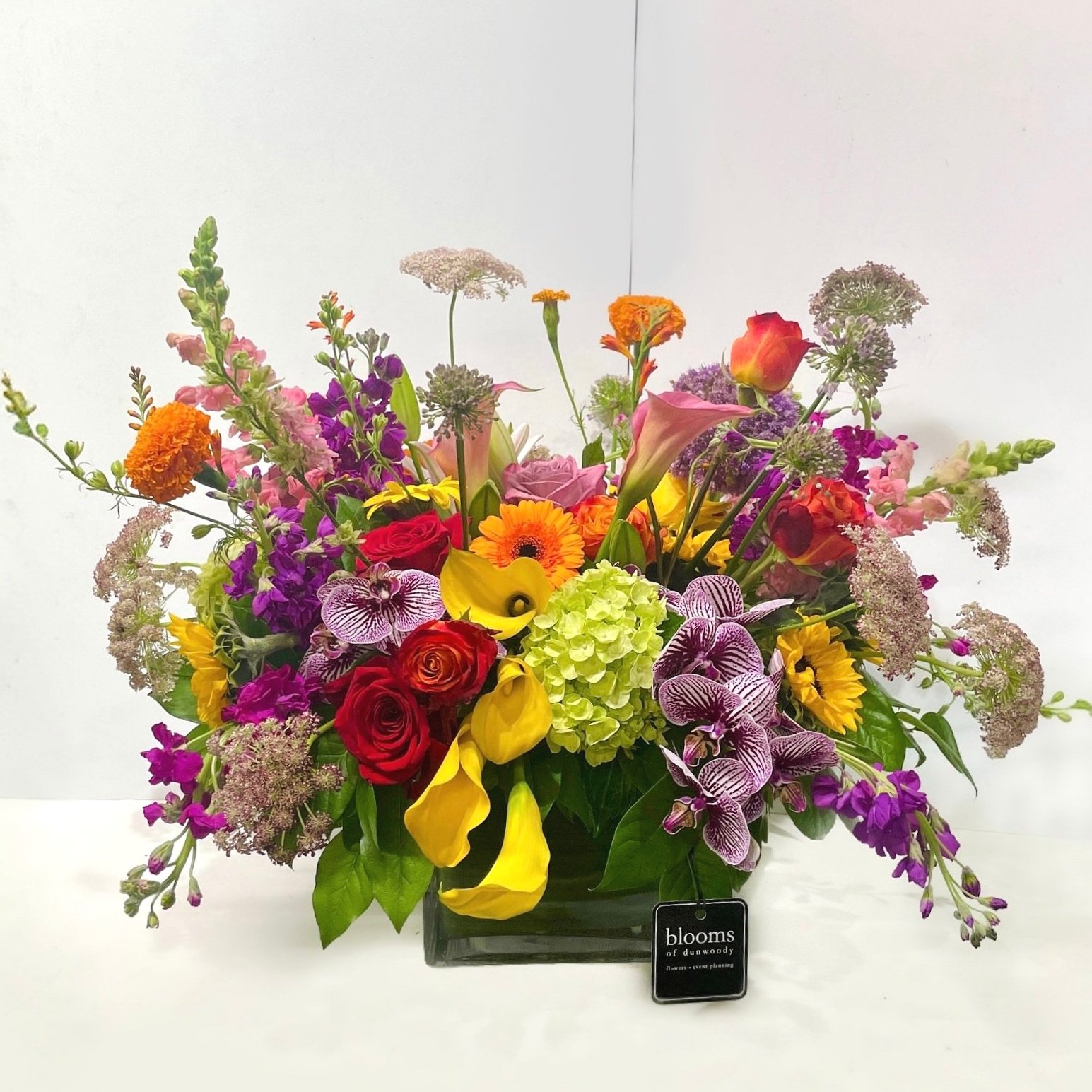
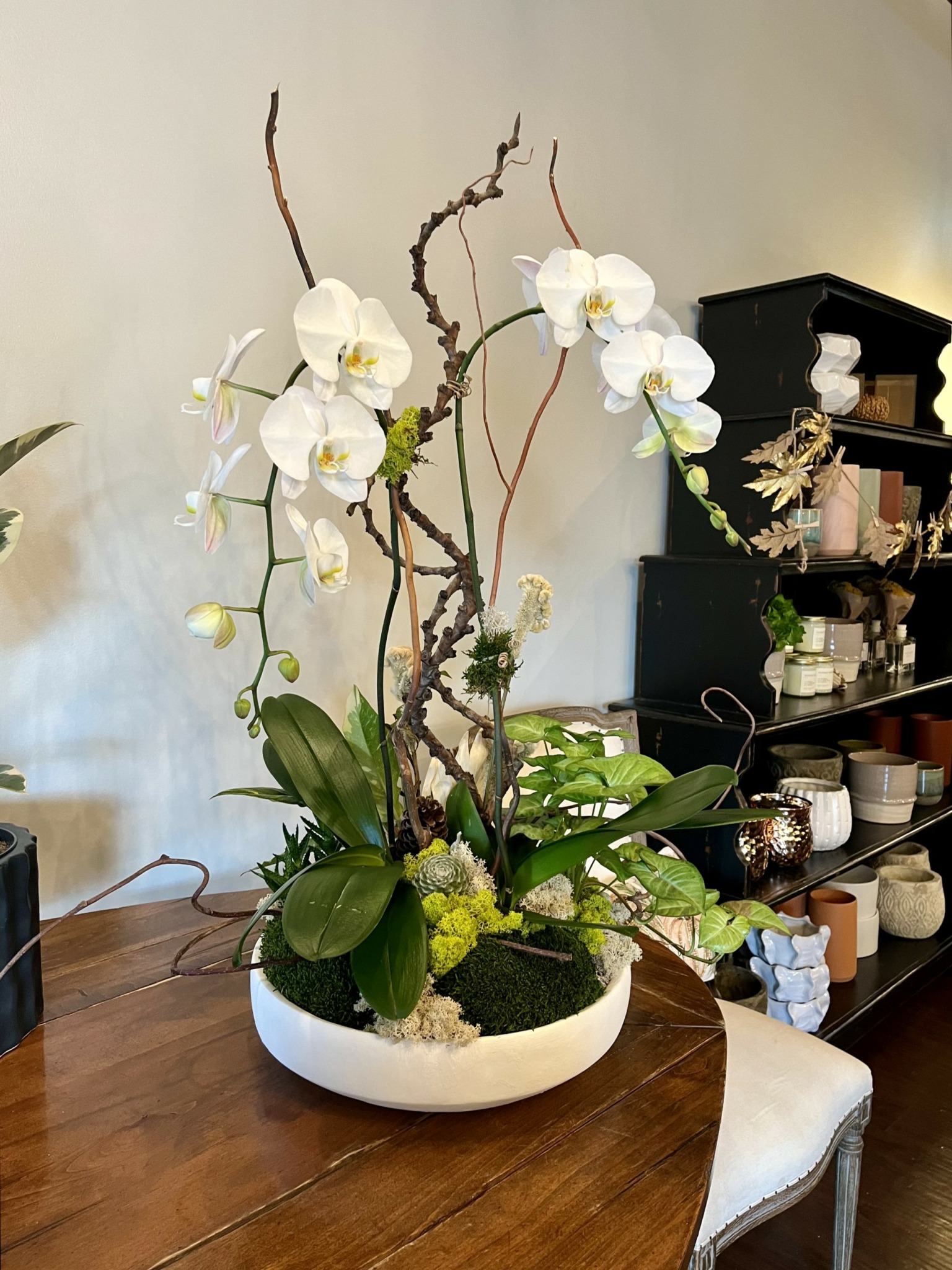
Jennifer, love having you share your insights with us. Before we ask you more questions, maybe you can take a moment to introduce yourself to our readers who might have missed our earlier conversations?
I’m Jennifer, the owner and creative director of Floral Matters and Blooms of Dunwoody—two boutique flower shops in Atlanta that specialize in design-forward floral arrangements, curated gifts, and custom botanical experiences.
My path to floristry wasn’t a straight line. I spent 15 years managing law firms—handling operations, teams, and a whole lot of logistics. Then I took nearly a decade away from the workforce to raise my kids. When I came back, I didn’t want to return to what I already knew. I wanted to create something that blended design, beauty, and business—something with soul.
That led me to flowers. I didn’t go to design school, but I had the eye, the drive, and a real passion for building systems that support creativity. I took over Floral Matters in 2023 and acquired Blooms of Dunwoody the following year. Each shop has its own voice and customer base, but both share the same heart: we make flowers that feel like you—elevated, intentional, and unforgettable.
We offer daily deliveries, custom floral arrangements, modern orchid compositions, personal flowers for small weddings and events, and corporate installations for hotels, offices, and brand activations. We’ve designed for iconic Atlanta clients like Coca-Cola, the Four Seasons, and America’s Mart, but we treat every order—big or small—as an opportunity to create something that makes people feel seen.
What sets us apart is our blend of artistry and professionalism. We care deeply about design—but also about the experience. The packaging. The delivery. The follow-through. Our clients know they can trust us to make them look good, whether they’re sending a thank-you or hosting a 500-guest event.
I’m most proud of the way we’ve evolved while staying true to our values. We lead with kindness. We honor craft. And we’re not afraid to raise the bar.
On the horizon, Floral Matters is relocating to a design studio at Ponce City Market—a move that reflects our evolution into a more focused, design-led brand. The new space allows us to center our work on corporate events, brand activations, and creative installations, while staying closely connected to Atlanta’s vibrant creative and business communities.
At Blooms, we’re expanding beyond flowers with the launch of our Blooms Home line—a curated selection of lifestyle goods that reflect our aesthetic and values. The collection includes matte ceramics, botanical candles, sculptural vessels, and everyday tools that are as beautiful as they are useful.
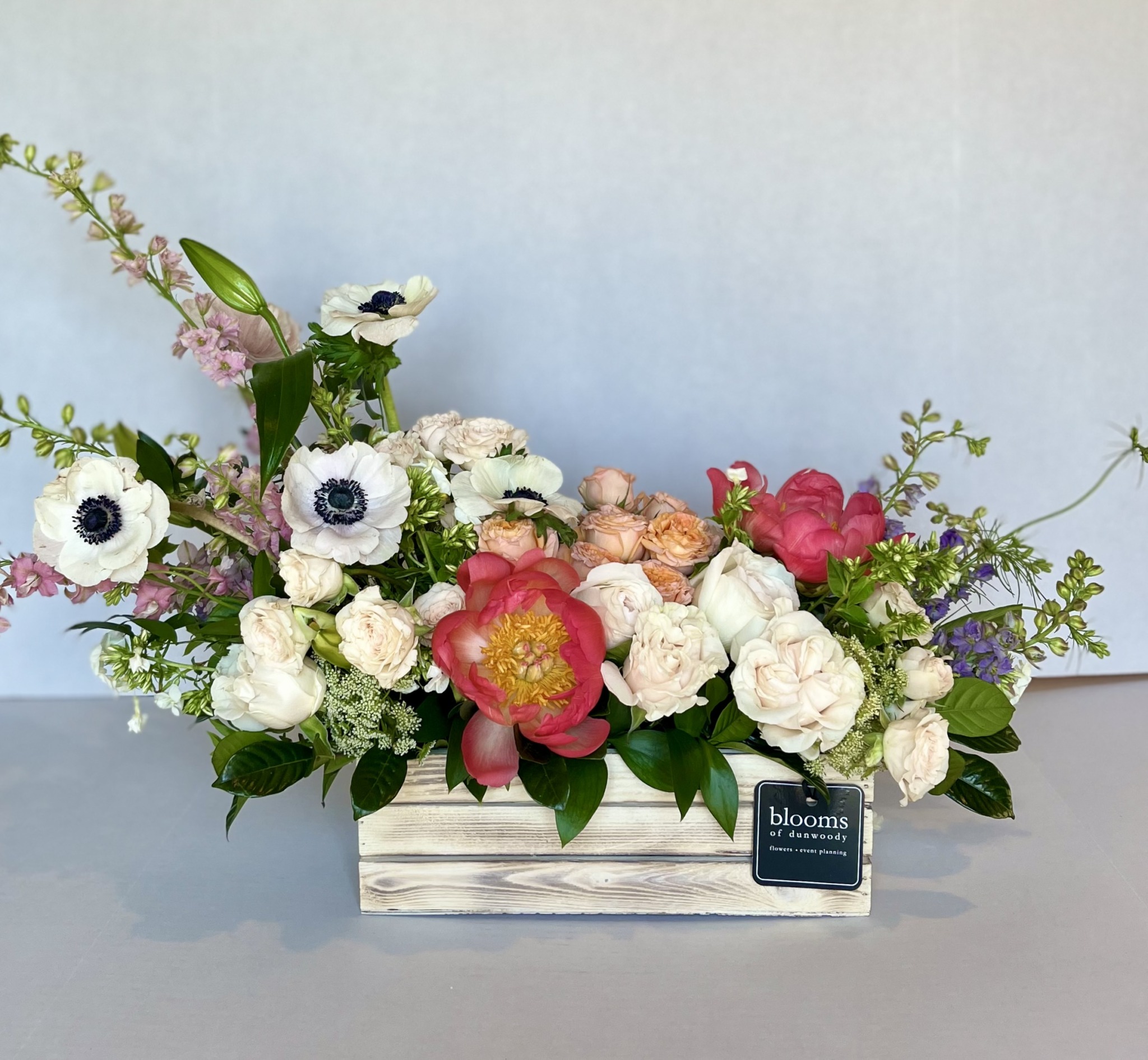
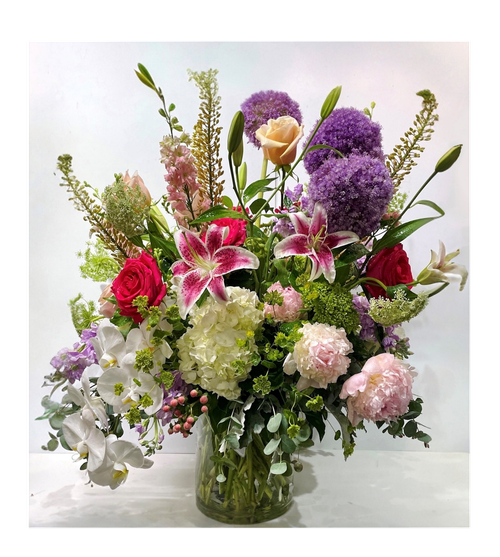
Let’s talk M&A – we’d love to hear your about your experience with buying businesses.
Yes—twice now.
I bought my first flower shop, Floral Matters, in 2023. At the time, I didn’t fully realize it, but it would become my training ground—the place where I learned how to lead a creative business from the inside out. I came from a background in operations and leadership, but floristry was new. I wasn’t sure if I just loved the idea of flowers or the work itself—so before committing, I flew to Washington, D.C. for an intensive weeklong floral design course. I wanted to make sure I truly loved the craft and understood the fundamentals, not just the business side.
Once I felt confident, I moved forward with the acquisition. I spent time shadowing the outgoing owner, not just reviewing financials, but absorbing the rhythm of the business. I wanted to understand how orders flowed, how clients were treated, and what kind of energy the shop carried. That human piece—the trust, the tone, the relationships—was just as important as the logistics.
It wasn’t just a business handoff—it was a legacy I was stepping into. The process included reviewing past sales, analyzing revenue by category, understanding vendor relationships, and getting a clear picture of COGS and staffing. But it was also about learning the heartbeat of the place. That first year taught me everything—from pricing to stem counts to what it means to lead a creative team.
A year later, I acquired Blooms of Dunwoody, a second shop in a different part of Atlanta. This time, I knew exactly what I was looking for: a strong brand with loyal clientele, and room to grow. The acquisition process was more tactical—negotiating lease terms, reviewing multi-year financials, and making a plan for team structure and inventory updates within the first 30 days.
Both deals were asset purchases, with contracts carefully drawn up by an attorney. I had to think through everything: intellectual property transfers, sales tax filings, staff retention, and how to signal change without creating fear. I kept the Blooms name but reimagined the aesthetic and internal systems to better reflect where I saw the brand going.
What I’ve learned is that buying a business isn’t just about money or margins. It’s about emotional intelligence, timing, and vision. You’re not just stepping into someone’s old QuickBooks file—you’re inheriting their culture, their client base, and sometimes even their burnout. And it’s up to you to honor that legacy while reshaping it into something that feels like your own.
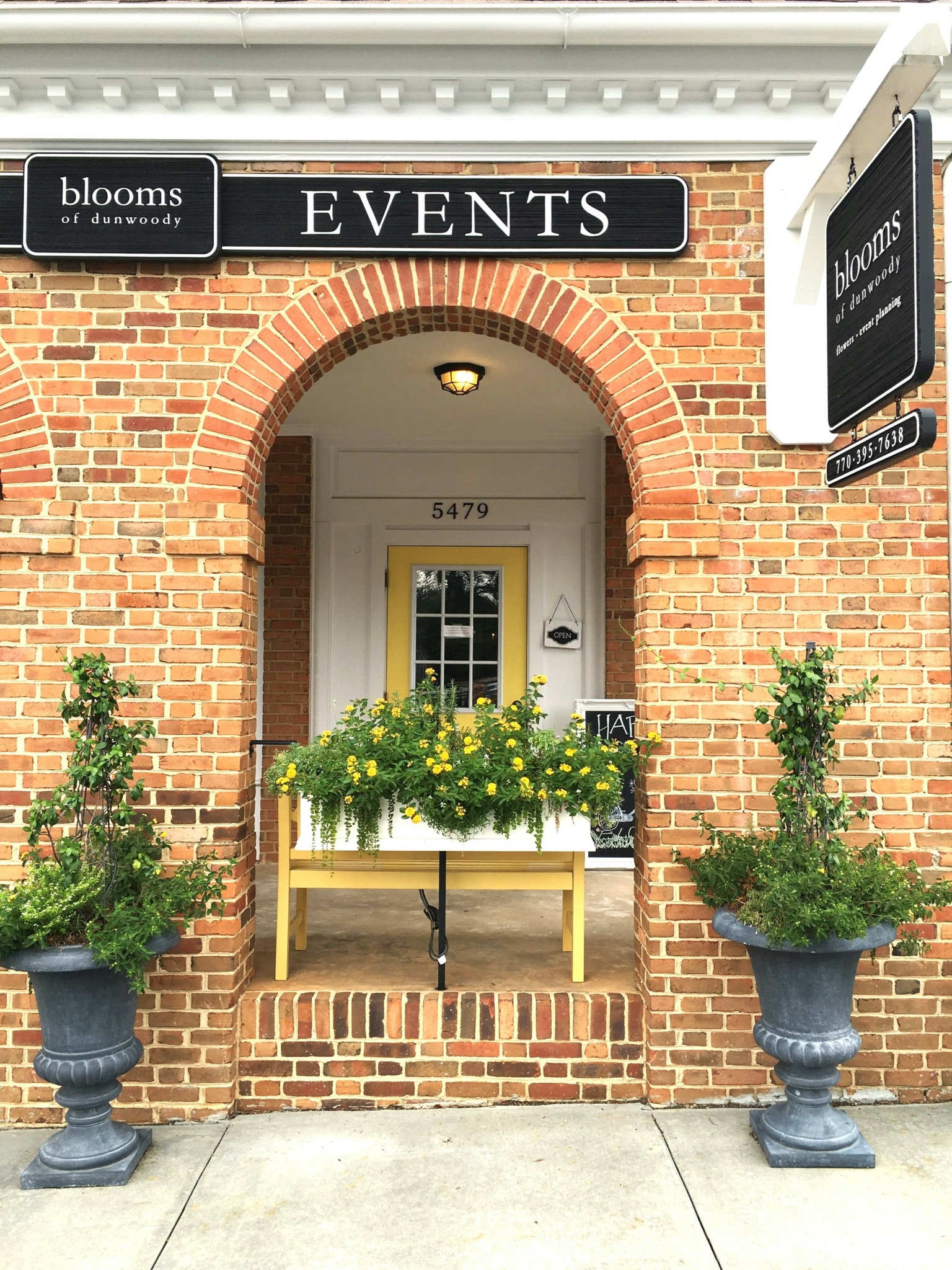
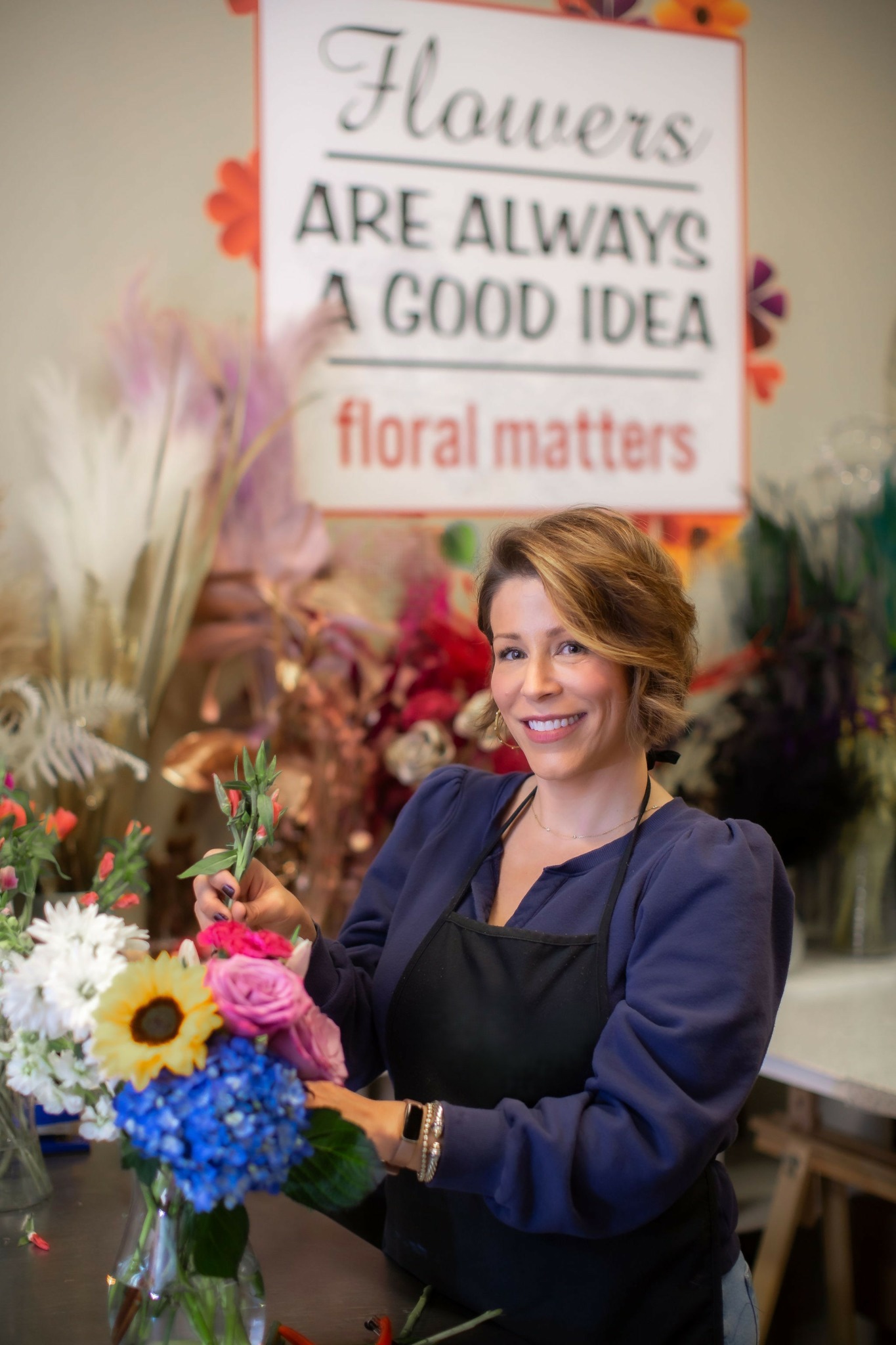
Any advice for managing a team?
Honestly? This is one I’m still learning—and it pushes me the most outside my comfort zone.
Managing a team, especially a creative team, is no small thing. Designers are passionate. They’re opinionated. Sometimes they’re downright divas. And I say that with love! The same intensity that makes them brilliant artists can also make them hard to manage at times.
I come from a background in operations and leadership, so I’m used to clear expectations, follow-through, and systems that work. But floristry is emotional. It’s subjective. It requires constant collaboration and trust. What I’ve learned is that managing this kind of team takes a blend of structure and softness. You need boundaries, but also flexibility. High standards, but also space for people to feel seen.
I’ve had to get more comfortable with hard conversations—when something’s off-brand, overbuilt, or not client-ready. I’ve learned it’s much easier to take someone with a strong eye and raw creative instincts and help them grow into a great designer than it is to retrain someone with years of “florist” habits who just doesn’t get the aesthetic. That climb—from basic to boutique—is harder than people think. I’m not looking for someone who can copy a recipe; I’m looking for someone who sees beauty in the details and wants to refine their craft. You can teach mechanics. You can’t teach taste.
Morale has been one of the hardest parts of running a creative business. I used to think it meant keeping the vibe light and being supportive—but I’ve learned that morale really starts with clarity. If people don’t know what success looks like, they can’t feel successful. They start second-guessing, bracing for feedback, or quietly checking out.
What I’m building isn’t just a flower shop—it’s a brand. And if I don’t clearly define what beautiful means here, I can’t expect anyone else to deliver it. That lack of clarity doesn’t just affect the work—it erodes morale. I’m now focused on being more explicit about our aesthetic, our expectations, and what great work looks like. The more clarity I give, the more confident and connected the team becomes.
Contact Info:
- Website: https://www.floralmattersonline.com
- Instagram: floralmatters
